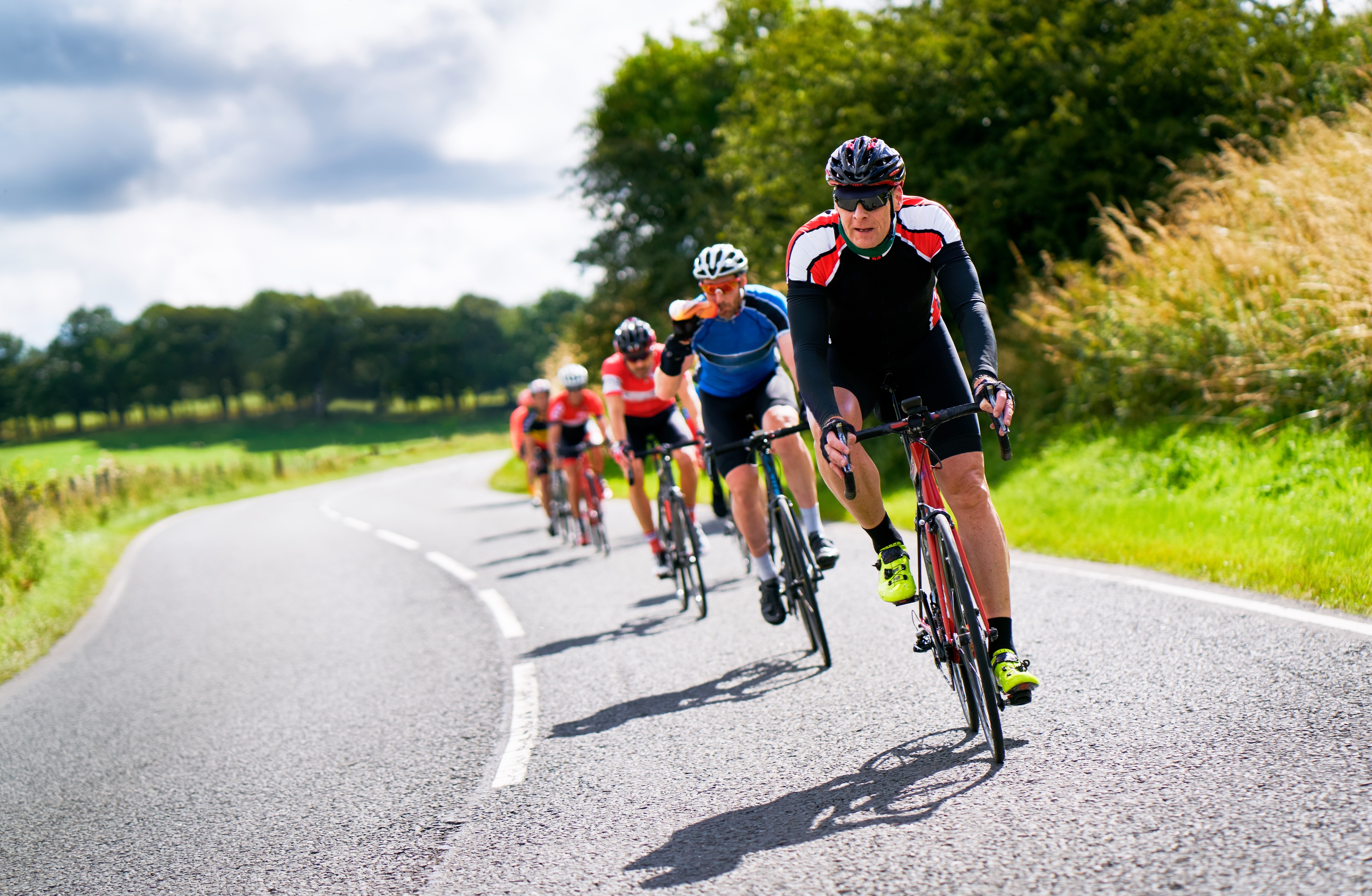We've always known it makes us happy, but when did we start talking about cycling and mental health?
From that post-ride glow to riding through and out of very difficult times, cycling is now part of the mental health conversation


The latest race content, interviews, features, reviews and expert buying guides, direct to your inbox!
You are now subscribed
Your newsletter sign-up was successful
According to my latest birthday, I've now been 'into' cycling (as opposed to just pulling skids and haring around the local neighbourhood making motorbike noises) for very nearly 40 years.
It's a long time. More years than I care to think about if I'm honest, though there have been a ton of great adventures along the way. But there are few periods that stand out more than those initial heady years as a young teenager when I was discovering cycling as a sport and pastime.
If I wasn't on the bike I was watching cycling (you could watch the Tour de France on TV 40 years ago, you see), or looking through catalogues at shiny components planning my next purchase, or reading about it in books.
One of those books was a seminal tome from the pen of a cycling writer named Richard Ballantine, called Richard's Bicycle Book. First published in 1975, it was a cyclists' bible of sorts and I still have a copy on my bookshelf today.
There was a line in the book about the beneficial effects of exercise on the brain that always stuck with me – so much so that I plagiarised it in my year nine English textbook (yes, I even wrote essays about cycling when I could).
Ballantine wrote that it allows you to "think better", adding, "if you think this is crazy, go outside and run around for a bit and then think it over again" and to "sleep better, and generally be more relaxed".
In fact he attributed these findings to a fellow cycling author Eugene Sloane, although I believe the little witticism about 'thinking it through again' was Ballantine's own, and was what my teenage self enjoyed the most about it.
The latest race content, interviews, features, reviews and expert buying guides, direct to your inbox!
However, it is the part about sleeping and feeling relaxed that is most pertinent here. Because while Ballantine didn't give it a 'mental health' label (way too taboo in the Seventies), mental health is exactly what he is talking about.
These days the benefit cycling and other physical exercise offers to mental health is just another accepted truism that brooks no questioning.
This was underlined in a new report from cycling holiday company Much Better Adventures which found that 44% of riders were saddling up at least partly for mental health reasons.
The 'Cyclists High Report' also highlighted a doubling of Google searches for 'cycling for mental health', while the number of articles exploring the subject has jumped from 40,400 in September 2024 to 94,100 in October 2025 – presumably 94,101 by the time I've finished this one. There are also 28 million TikTok videos on the topic 'Ride a bike for mental health'.
The fact that articles, social media posts and searches are so prevalent is a two-fold triumph. Most importantly for mental health, but for cycling too. And it says a lot about the world we live in today. Back in Ballantine's day, if you started talking about wanting to improve your mental health you might get some sideways glances and no small amount of concern over your 'stability'.
Even so, at the time Ballantine wrote his book, the mood-boosting effects of cycling were undoubtedly known about anecdotally. Sloane's assertion that exercise meant better thinking and better sleep were written in 1970 after all, and the healthy glow (both physical and mental) experienced upon returning from a couple of hours out on the road would no doubt have been noted by many bike riders (and of course their families). But the whole subject of exercise psychology was only just emerging.
One of the earliest controlled studies on the subject was carried out in 1979 by Greist et al, who found benefits of exercise equal to or more effective than time-limited and time-unlimited psychotherapy.
More recently in 1999, researchers at Duke University carried out one of the first randomised controlled trials that pitched exercise against SSRI anti-depressant drugs. It will come as no surprise to hear that exercise performed comparably, with participants who combined the two doing particularly well in the initial study.
However, in a six-month review it was the exercise-only group who were experiencing by far the lowest incidence of continued depression.
At the time this was a major finding, and it is one that has been backed up again and again over the past 20 or so years.
On top of that, there are the many human stories that have come as a result of our new found openness.
Only recently, my colleague Andy Carr wrote about his two-wheeled mental health journey, coming back from stress and burnout. Elsewhere, Amy Hudson completed the entire Tour de France route (and transfers) in 29 days, celebrating the sport that helped her recover her mental health and raising £89,000 for mental health charity Shout.
On the flipside, our openness with mental health has also enabled bike riders to speak up when things go wrong. We have seen an unprecedented number of professionals retiring from the top level this year, citing mental health reasons. Nobody wants to see people pushed to breaking point like this, but the fact they can retire and be open about it when it happens can only be progress.
These days, scientific studies showing cycling's mood-boosting benefits have arguably dwindled in importance compared to how comfortable we all now are in admitting that riding a bike is really good for our mental health, and sharing in the human stories of the inner calm it can offer. Long may it continue.
After cutting his teeth on local and national newspapers, James began at Cycling Weekly as a sub-editor in 2000 when the current office was literally all fields.
Eventually becoming chief sub-editor, in 2016 he switched to the job of full-time writer, and covers news, racing and features.
He has worked at a variety of races, from the Classics to the Giro d'Italia – and this year will be his seventh Tour de France.
A lifelong cyclist and cycling fan, James's racing days (and most of his fitness) are now behind him. But he still rides regularly, both on the road and on the gravelly stuff.
You must confirm your public display name before commenting
Please logout and then login again, you will then be prompted to enter your display name.
